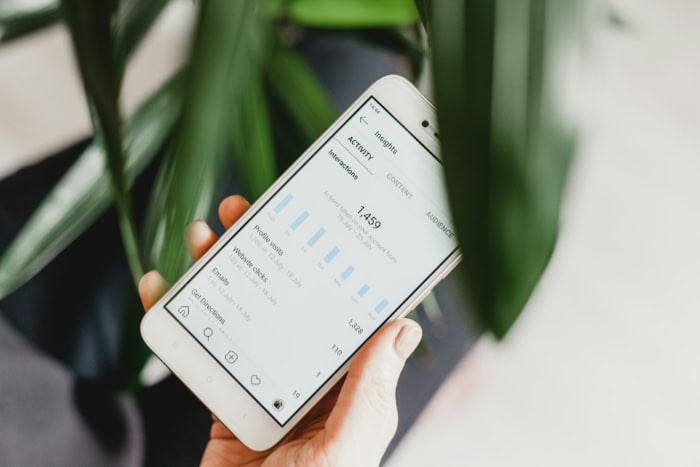Advantages and Disadvantages of Social Media: Key Takeaways

A world of instant communication and global connection exists at our fingertips, reshaping how we relate to one another. With platforms like TikTok, Facebook, and Instagram, people can share experiences, ideas, and creativity in ways that were unimaginable just a couple of decades ago.
These digital spaces foster community and have become essential tools for marketing, education, and advocacy. However, lurking beneath the surface are significant challenges such as privacy risks, mental health concerns, and the spread of harmful misinformation.
As our reliance on these platforms grows, it becomes essential to evaluate both their advantages and potential pitfalls.
Communication and Connectivity
The rise of social media has fundamentally changed the way people communicate and maintain relationships. With platforms offering instant connectivity across the globe, individuals can interact with friends, family, and new acquaintances in real time, regardless of geographic barriers.
Social media fosters a sense of community that transcends physical limitations, enhancing both personal and professional interactions.
Global Reach and Instant Communication
Social media’s ability to connect users instantaneously is one of its most impressive traits. Individuals can share thoughts, updates, and multimedia instantly, allowing messages to travel across the globe within seconds.
This form of communication not only facilitates personal interactions but also enhances the flow of information on a larger scale. News, events, and updates can be shared widely and quickly, enabling users to stay current and engaged with global happenings.
The immediacy of social media also allows users to reach out and connect during important moments or emergencies. For instance, people can offer support to friends dealing with crises, stay connected during natural disasters, or celebrate milestones together despite physical distances.
This instant communication nurtures a sense of closeness, fostering relationships that might otherwise suffer from separation.
Building and Maintaining Relationships
Social media serves as a powerful tool for building and maintaining relationships. It enables users to keep in touch with friends and loved ones, share life events, and engage in dialogue, all of which strengthen emotional bonds.
With platforms offering features such as direct messaging, video calls, and group chats, users can maintain meaningful connections no matter the distance.
Moreover, social media provides avenues for reconnecting with old friends or acquaintances. People can search for past classmates, colleagues, and even family members they’ve lost touch with, reigniting relationships that may have faded over time.
This ability to reconnect adds an enriching layer to personal relationships and can lead to valuable social support networks.
Cross-Cultural Exchange
One of the most notable aspects of social media is its role in facilitating cross-cultural exchange. Users from diverse backgrounds share their traditions, values, and experiences, promoting a broader understanding of different cultures.
This exchange often occurs organically through posts, comments, and shares, allowing individuals to learn from others in ways that would be difficult in a traditional setting.
As people interact with various cultures, they gain insights that can challenge stereotypes, foster empathy, and create a global perspective. Social media platforms also promote events and content that highlight cultural diversity, encouraging users to participate in discussions that broaden their horizons.
In doing so, social media transforms local conversations into global dialogues, enriching the user experience and encouraging collaboration across borders.
Professional Networking Opportunities
Social media has reshaped professional networking, making it easier than ever for individuals to connect with industry peers, potential employers, and mentors. Platforms like LinkedIn have become essential for professionals seeking to expand their networks.
Users can showcase their skills, experience, and accomplishments, making it simple for recruiters and companies to discover talent.
Additionally, social media facilitates engagement with industry-related content, allowing users to stay informed about trends, innovations, and best practices. This access to information fosters professional growth and can lead to new opportunities.
Online networking events, webinars, and forums provide further avenues for users to engage meaningfully with peers, share knowledge, and build professional relationships that can enhance their careers.
Business and Economic Impact

Social media has significantly transformed the way businesses operate, influencing everything from marketing strategies to customer engagement.
With the ability to reach vast audiences and tailor content to specific demographics, companies can effectively promote their brands and products in ways previously unimaginable.
Marketing and Brand Building
Social media serves as a powerful marketing platform that allows businesses to create and maintain their brand identity. Companies can utilize platforms like Instagram, Facebook, Twitter, and TikTok to engage with audiences through visually appealing content, storytelling, and interactive posts.
This direct interaction helps brands to humanize themselves, fostering a connection with consumers that builds loyalty and trust.
In addition to organic content, social media advertising offers targeted marketing opportunities. Businesses can tailor their ads to specific demographics, interests, and behaviors, ensuring that their messages reach the right audience.
This level of targeting enhances the effectiveness of marketing campaigns, allowing companies to see higher engagement rates and better return on investment.
Furthermore, the analytics provided by social media platforms enable brands to track their performance in real-time, making it easier to refine strategies based on user feedback and trends.
Customer Engagement and Feedback
Social media has transformed the way businesses engage with their customers. Platforms provide a space where consumers can express their opinions, ask questions, and share experiences.
This open dialogue fosters a community around brands, allowing companies to listen to their audience and respond promptly. Quick responses to customer inquiries or complaints can enhance customer satisfaction and loyalty.
Moreover, social media offers a unique channel for gathering feedback. Businesses can conduct polls, surveys, or simple question-and-answer sessions to gain insights into consumer preferences.
This feedback not only informs product development but also helps in shaping marketing strategies. When companies actively engage with customers and show they value their input, they strengthen their relationship and create a sense of belonging among their audience.
E-Commerce Integration
The integration of e-commerce with social media has facilitated a seamless shopping experience for consumers. Platforms are increasingly incorporating shopping features that allow users to purchase products directly through their feeds.
This functionality streamlines the buying process, reducing the barriers between discovering a product and making a purchase.
Additionally, social media acts as a virtual storefront, where brands can showcase their products through images, videos, and live demonstrations. Shoppable posts and ads make it easy for users to click and buy, turning casual browsing into immediate sales.
Influencer partnerships further enhance this integration, as influencers can introduce products to their followers, often leading to impulse buys and increased brand visibility. This connection between social media and e-commerce has created new revenue streams for businesses and changed how consumers shop.
Small Business Opportunities
Social media has become a game changer for small businesses, providing them with access to marketing tools and audiences that were once only available to larger corporations.
The cost-effectiveness of social media marketing allows small businesses to compete on a more level playing field.
With a compelling online presence, they can build brand awareness and reach potential customers without significant financial outlay.
Furthermore, small businesses can leverage social media to build community and engage directly with local customers. By sharing stories, promoting local events, or highlighting customer testimonials, these businesses can foster a loyal customer base.
The ability to respond to customer inquiries in real-time also allows small enterprises to provide personalized service, enhancing customer relationships and encouraging repeat business.
Social media also supports collaboration among small businesses, enabling them to share resources, cross-promote, and collaborate on projects.
Whether through joint campaigns or partnerships with local influencers, small businesses can expand their reach and visibility within their communities, cultivating a sense of solidarity in the marketplace.
Educational and Knowledge Sharing

Social media has emerged as a powerful tool for educational and knowledge sharing, enabling individuals to access a wealth of information and resources in an unprecedented manner.
From online courses to discussion forums, these platforms facilitate learning opportunities that are flexible and engaging.
As users seek to enhance their skills or acquire new knowledge, social media plays a critical role in shaping modern education.
Access to Learning Resources
The advent of social media has dramatically increased access to educational resources. Platforms like YouTube, Facebook, and Twitter are filled with content that caters to diverse learning needs and interests.
Educational channels share tutorials, lectures, and discussions on a wide array of subjects, making expert knowledge readily available to anyone with an internet connection.
Moreover, social media enables users to connect with educators, industry experts, and thought leaders who share insights and advice. This direct access to knowledgeable individuals allows learners to ask questions, seek guidance, and engage with content that enhances their understanding.
Various communities and groups dedicated to specific subjects also contribute to resource sharing, creating a collaborative space where individuals can exchange information and support one another in their learning endeavors.
Skill Development Platforms
Numerous social media platforms focus specifically on skill development, offering users the chance to enhance their abilities in a structured environment. Sites like LinkedIn Learning and Skillshare provide courses on everything from coding to graphic design, often taught by industry professionals.
These platforms underscore the importance of lifelong learning, allowing users to continually upgrade their skills to remain competitive in an ever-changing job market.
Additionally, social media facilitates peer-to-peer learning through platforms like Discord or Reddit, where users can engage in discussions, ask for advice, or participate in practical projects.
These informal learning opportunities empower individuals to develop skills through real-world experiences and collaborative efforts, reinforcing the application of knowledge in practical settings.
Real-Time Information Exchange
The speed of information exchange on social media is one of its most significant advantages, especially in education. Events, developments, and breakthroughs can be shared and discussed in real time, allowing learners to stay informed about the latest trends in their fields.
This immediacy encourages users to engage with current events, fostering a sense of curiosity and prompting further exploration of topics.
Live streaming and webinars hosted on platforms like Facebook Live and Instagram allow educators to connect with students directly, providing opportunities for interactive learning experiences.
Participants can ask questions and receive immediate feedback, creating a dynamic environment where discussion and learning occur simultaneously. This real-time interaction helps bridge the gap between traditional education and modern learning practices, enhancing the educational experience for users.
Collaborative Learning Environments
Social media fosters collaborative learning environments that encourage teamwork and collective problem-solving. Platforms allow users to form groups centered around shared interests or educational goals, facilitating discussions, brainstorming sessions, and collaborative projects.
This team-oriented approach not only strengthens understanding but also cultivates skills such as communication, negotiation, and critical thinking.
Through these collaborative efforts, learners can pool resources, share insights, and support one another in achieving common objectives. The diversity of perspectives within these groups enhances the learning process, as members contribute unique experiences and knowledge.
In this way, social media acts as a catalyst for collaboration, enriching the educational experience by bringing together individuals with varied backgrounds and expertise.
Mental Health and Social Impact

The rise of social media has not only transformed communication and information sharing but has also brought about significant implications for mental health and social dynamics. As users engage with these platforms, they face various challenges that can affect their well-being, self-esteem, and relationships.
Digital Well-Being Concerns
Digital well-being encompasses the overall health effects of prolonged social media usage. As users are drawn into endless scrolling, notifications, and interactions, they may experience feelings of anxiety and stress.
The pressure to remain constantly connected and respond to messages can lead to burnout, diminished focus, and a lack of emotional balance.
Many individuals find themselves sacrificing time spent on self-care, relaxation, and face-to-face interactions in favor of online engagement.
To address these concerns, various platforms have introduced features aimed at promoting healthier usage habits. For instance, tools that track screen time or send reminders to take breaks encourage users to develop more mindful relationships with their social media activities.
Incorporating these practices into daily routines can significantly improve mental health and enhance overall well-being.
Social Comparison and Self-Esteem
Social media can foster an environment of social comparison, where users evaluate their lives against curated representations presented by others. Individuals often showcase their best moments, leading others to perceive their lives as more successful or fulfilling.
This phenomenon can lead to feelings of inadequacy, low self-esteem, and anxiety. The pressure to conform to idealized standards portrayed online can create a distorted view of reality, where individuals believe they must strive for unattainable goals.
This impact is particularly pronounced among younger users, who are still forming their self-identity and coping mechanisms. The constant barrage of images depicting beauty, success, or popularity can undermine their confidence and sense of self-worth.
Promoting positive mental health and resilience requires fostering awareness around these challenges and encouraging self-acceptance, emphasizing the importance of valuing one’s unique journey rather than measuring it against others.
Online Harassment and Cyberbullying
The anonymity afforded by social media can lead to negative behaviors, such as online harassment and cyberbullying. These harmful actions can have severe emotional and psychological consequences for victims.
The pervasive nature of digital communication means that harassment can occur at any time, making it difficult for individuals to escape the negative impacts. Victims may experience isolation, depression, and anxiety, further complicating their mental health.
Social media platforms have started implementing measures to combat harassment, including reporting mechanisms and community guidelines. However, the effectiveness of these measures can vary, and many users still feel unsafe or vulnerable online.
Creating safer online environments necessitates a collective commitment from users, platforms, and educators to increase awareness, promote empathy, and foster supportive communities.
Impact on Real-World Relationships
While social media can strengthen connections, it also has the potential to weaken real-world relationships. Users may prioritize online interactions over in-person communication, leading to feelings of loneliness and disconnection.
The quality of relationships can suffer when individuals engage more with virtual personas than with those physically present in their lives. This shift can affect dynamics within families, friendships, and romantic partnerships, creating misunderstandings and diminishing emotional intimacy.
Moreover, social media can create unrealistic expectations for relationships, where individuals may feel pressured to present their connections positively and publicly. This can result in performance-driven behaviors rather than genuine interactions.
Encouraging individuals to find balance in their offline and online lives can improve the quality of relationships, helping them to foster authentic connections and emotional support networks.
Privacy and Security Considerations

As social media continues to integrate deeply into daily life, concerns regarding privacy and security have become increasingly prominent. Users regularly share personal information, often without fully comprehending the ramifications of their online behavior.
Protecting personal data and ensuring online safety are essential in today’s digital environment.
Data Collection and Usage
Social media platforms collect vast amounts of data from their users, including personal information, preferences, and online behavior. This data is often used for targeted advertising, allowing brands to tailor their messages to specific audiences.
While this personalized marketing can enhance user experience, it raises significant concerns about consent and data ownership. Many users may not be fully aware of what data is being collected, how it is used, or who has access to it.
Privacy policies can often be complex and lengthy, leaving users with little understanding of their rights and how to protect their information.
Furthermore, data breaches can expose sensitive personal information, leading to identity theft and other malicious activities.
As users engage with social media, being informed about data collection practices and exercising control over personal information is crucial.
Digital Footprint Management
Every interaction on social media contributes to an individual’s digital footprint, which is the trail of data left behind from online activities. This footprint can include posts, comments, likes, and shared content, all of which can be accessed by others, including potential employers, educational institutions, and even law enforcement agencies.
Managing one’s digital footprint is essential for maintaining privacy and protecting personal reputation.
Users can take proactive steps to manage their digital footprints by regularly reviewing privacy settings on social media accounts and being selective about what they share. It’s important to think critically about the content posted online and consider how it may be perceived in the future.
Deleting or editing past posts can help reduce the digital footprint, but it’s essential to remember that once something is shared online, it can be challenging to remove it entirely.
Online Safety Risks
Engaging on social media comes with inherent safety risks that users should be aware of. Phishing scams, where malicious actors attempt to deceive individuals into revealing personal information, are common.
These scams can take the form of suspicious messages, links, or friend requests that appear trustworthy but lead to harmful sites. Protecting oneself from these risks requires vigilance and skepticism when approached by unfamiliar accounts or content.
Additionally, unsupervised interactions with strangers on social media can lead to more serious risks, including stalking or harassment. Users should be mindful of their interactions and the information shared, particularly in public forums.
Using privacy settings to limit visibility to trusted connections and reporting any threatening behavior can help mitigate these risks and enhance overall safety.
Identity Protection Challenges
Identity theft remains a significant concern in the age of social media. With so much personal information available online, individuals become prime targets for cybercriminals.
Theft can occur through various methods, including data breaches, social engineering, and public sharing of sensitive information. Once identities are stolen, victims can experience financial loss, reputational damage, and emotional distress.
To protect against identity theft, users should implement strong, unique passwords for social media accounts and enable two-factor authentication wherever possible.
Being cautious about sharing personal details, such as full names, addresses, or financial information, can also reduce the risk of identity theft.
Furthermore, regularly monitoring financial accounts and using identity protection services can provide an additional layer of security.
Conclusion
Social media has profoundly impacted various aspects of modern life, shaping how individuals communicate, learn, and interact with the world around them.
While it offers numerous advantages, such as enhanced connectivity, marketing opportunities, and access to educational resources, it also presents significant challenges related to mental health, privacy, and security.
The importance of being aware of both the benefits and risks associated with social media cannot be overstated.
Promoting a balanced approach to social media use can help individuals navigate its complexities more effectively. By prioritizing mental well-being, practicing responsible sharing, managing digital footprints, and ensuring online safety, users can harness the positive aspects of these platforms while minimizing potential harm.
Embracing digital literacy and fostering healthy online habits will enable everyone to engage with social media in a way that enriches their lives and supports their overall well-being.
As the digital landscape continues to evolve, remaining informed and proactive will empower individuals to make the most of their social media experiences.


